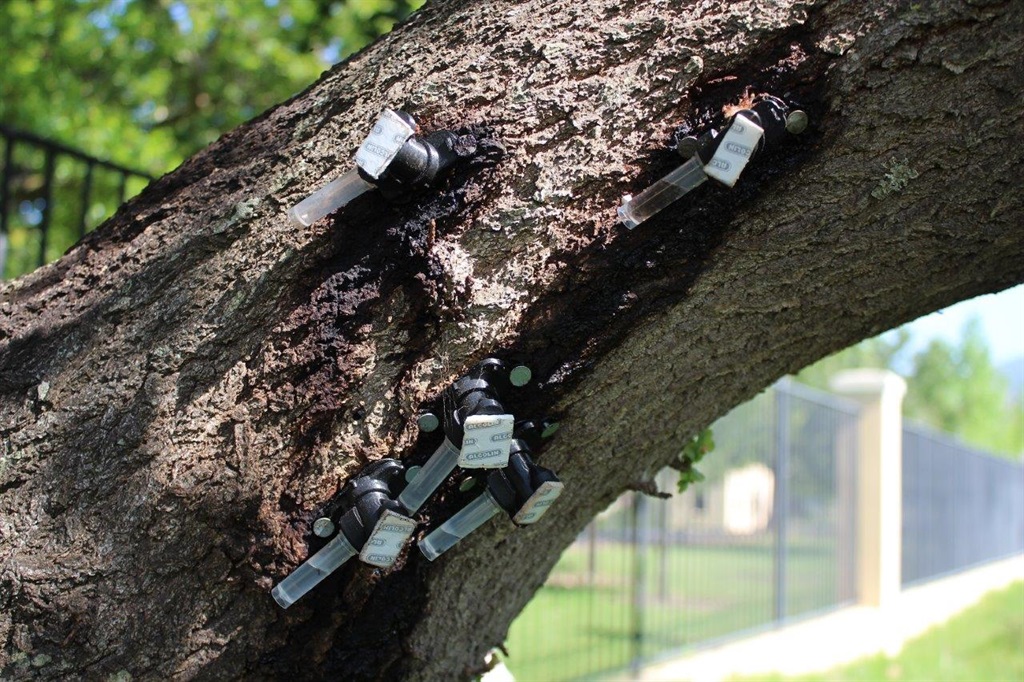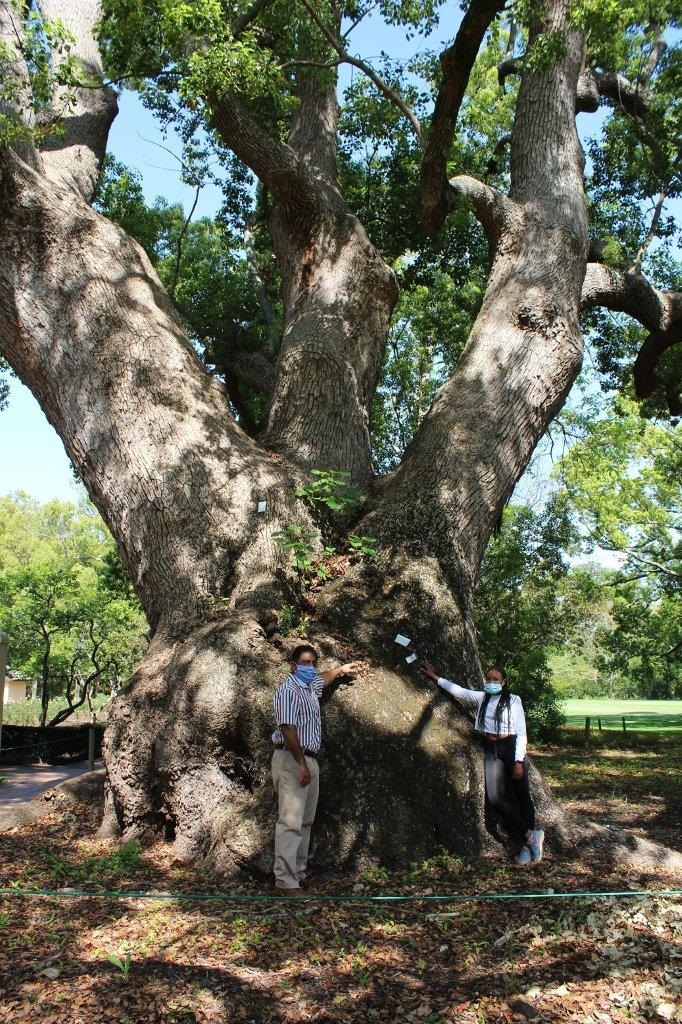
- Western Cape researchers have made strides in efforts to understand the behaviour of the polyphagous shot hole borer beetle.
- The beetle has been causing devastation in gardens and forests since 2017.
- The research is exploring ways to lower beetle numbers, and is examining seasonal behaviour.
Research from a Western Cape wine estate shows promise in efforts to eradicate the dreaded polyphagous shot hole borer beetle, which is threatening natural vegetation.
The tiny beetle bores into tree trunks, introducing a fungus that weakens and often kills the trees. It has been causing devastation in gardens and forests since it was discovered in South Africa in 2017.
Vergelegen is the site of the intensive three-year project on the beetle, which forms part of research by PhD candidate Heather Nependa from the Department of Conservation Ecology and Entomology in the Faculty of AgriScience at Stellenbosch University.
The 321-year-old estate is home to a vast collection of historic trees, according to risk and commercial manager Leslie Naidoo.
The research, based on the monitoring of 14 infected trees at Vergelegen, has gathered some valuable insight. Through the study, researchers are better informed about the seasonal distribution of the beetle.
READ | As hundreds of seals buried Western Cape government awaits report on cause of deaths
Vergelegen uses two trap types to monitor the beetles. One is a chemical lure in a plastic bottle intended to repel the beetles from trees. The other is a 3D-printed trap secured over holes beetles made on infected trees, with steel mesh over each opening to prevent the pests from escaping.
Beetle counts held every two weeks at the chemical traps revealed a sharp increase in numbers in April and May, when about 500 beetles were collected at each inspection. These numbers began to decrease in June and July, with about 10 to 20 beetles per inspection.
At the 3D traps, the first beetles also emerged in April and May.
Nependa said:
To further unravel beetle biology and behaviour, 50 plots were set up around each chemical trap. Each tree in a plot was surveyed, and researchers evaluated entry holes, sap flow and other signs of boring. These were first assessed in April and July, with further assessments every three months.
The early results showed that the chemical lures were crucial in keeping beetle numbers low, said Nependa.
Nependa is also investigating the use of an insecticide and a fungicide to treat affected trees.
READ | Avian Flu killing about 500 sea birds a day at breeding colony off Western Cape coast
The first set of these chemical injections was applied in February and March. The trees that received this treatment were monitored every 28 days, and it was found that infection rates slowed after the treatment. Further chemical trials started in October.
Researchers are also mapping the economic impact of the beetle using satellite images taken in 2019 and 2020. The research will continue until June 2022.
"Trees provide so many benefits, from their natural beauty to helping to stop climate change. We are delighted that Vergelegen can play a role in helping to find out more about this pest, so that we can protect our precious arboreal heritage," Nependa said.




 Publications
Publications
 Partners
Partners
























